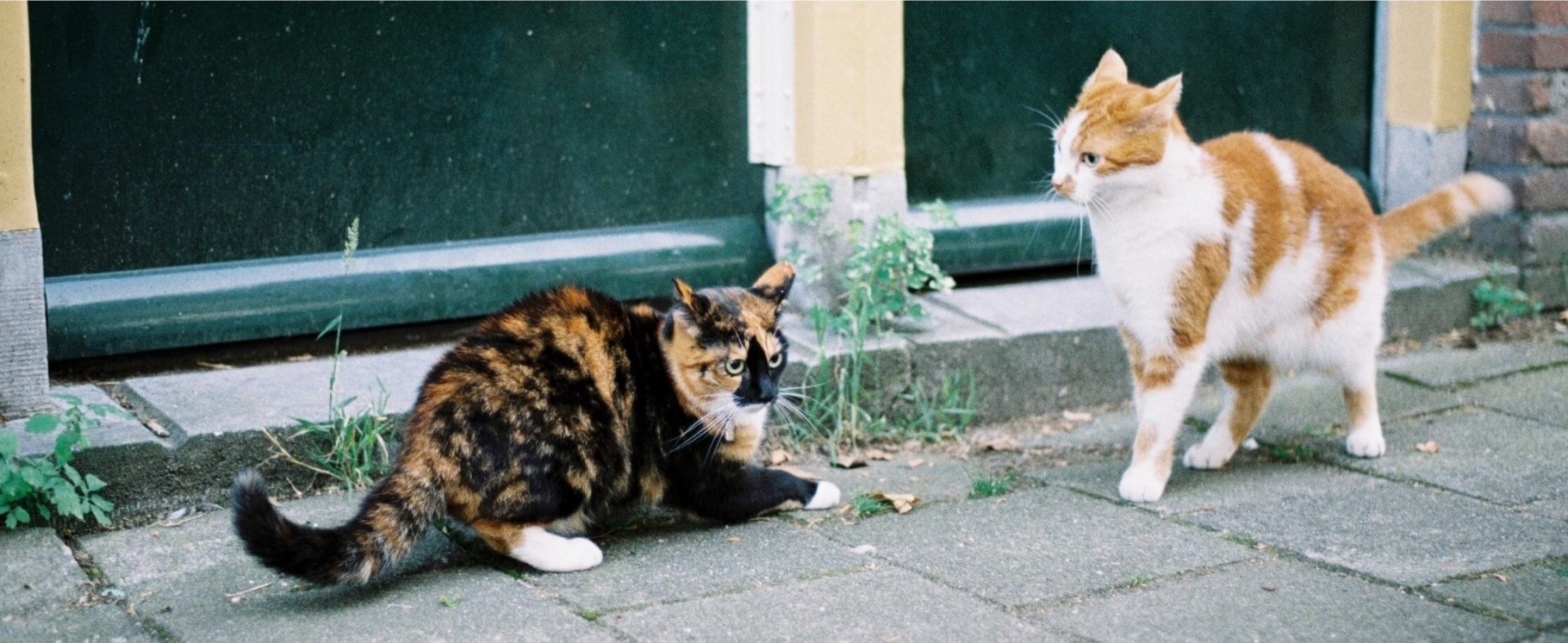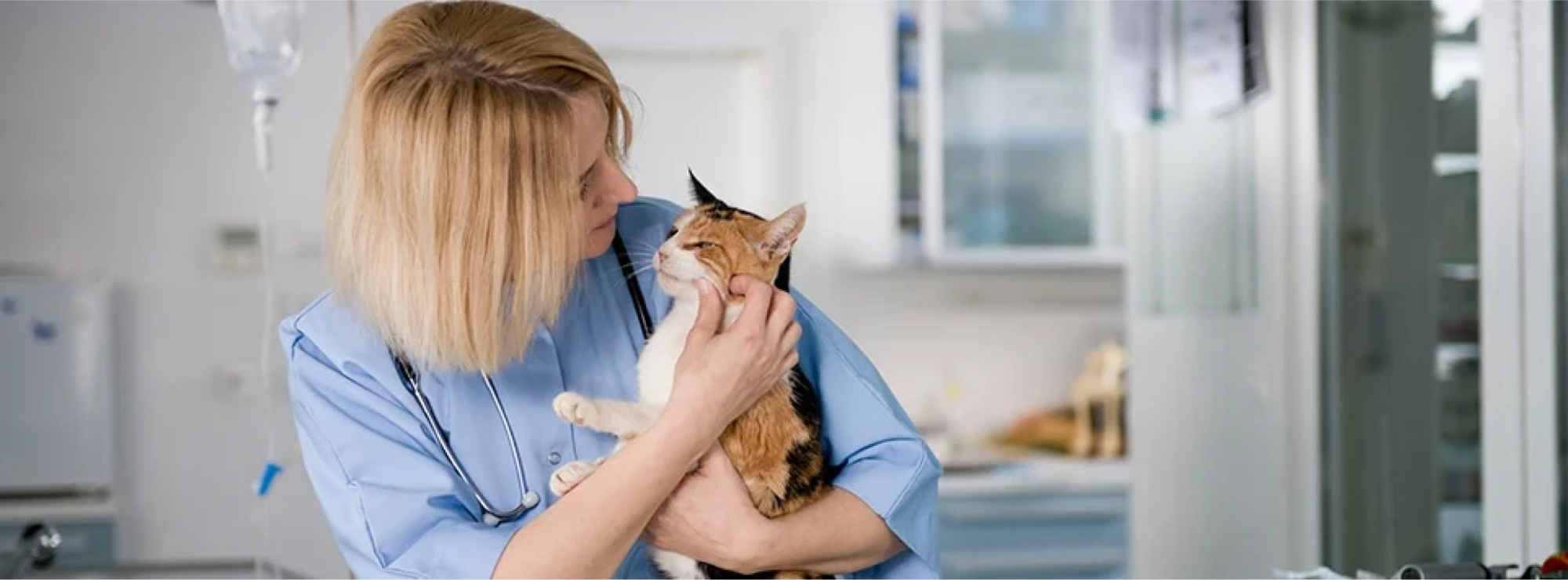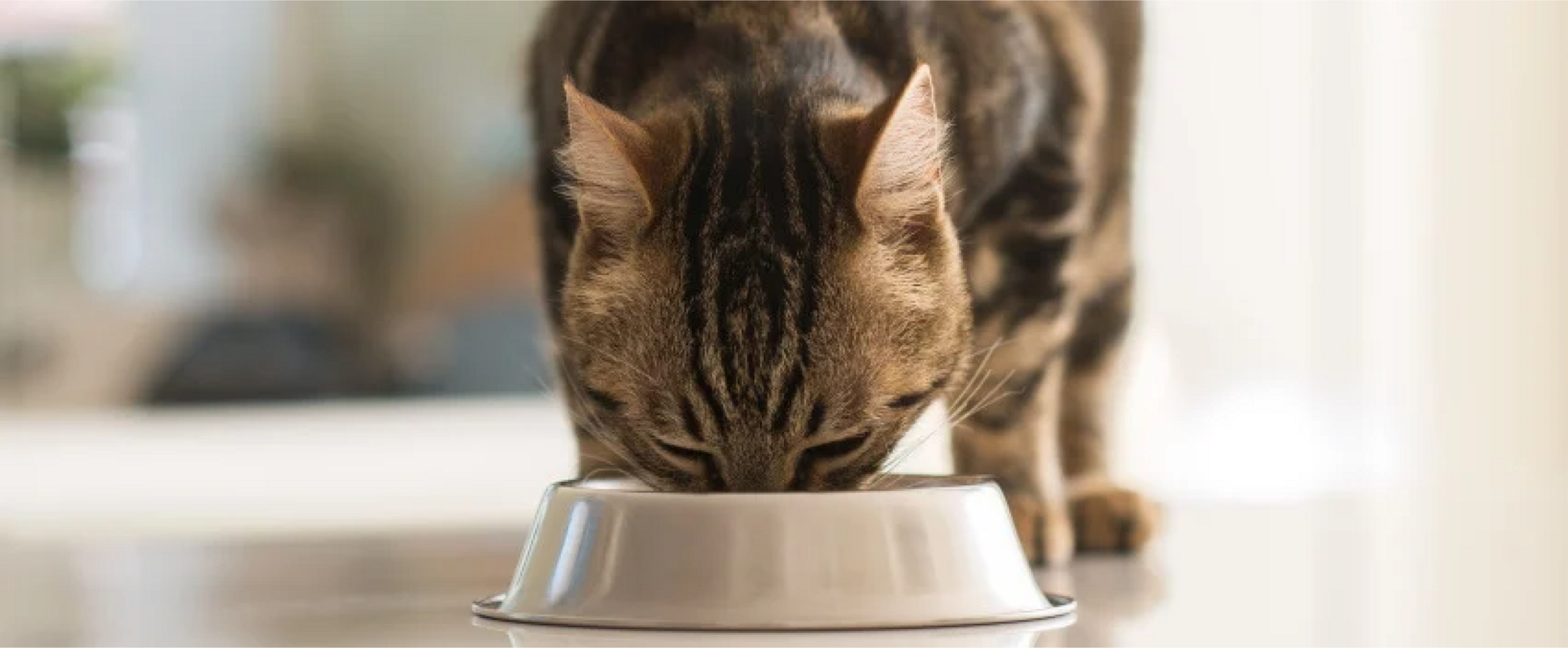Last Updated: 06/05/2025
Feline Immunodeficiency Virus
Has your cat been diagnosed with FIV? Take a look at our Vet-guide to know how you can provide the best care for your cat.
Author: Dr Jacqui Victor BVSc MANZCVS (Medicine of Cats)
Reading Time: 22 minutes - medium read
Feline Immunodeficiency Virus (FIV) is a common infectious disease of cats worldwide. In Australia, approximately 15% of cats are estimated to be infected with FIV, most commonly entire males and free-roaming cats. Although it may be scary to find out your kitty is FIV-positive, it is important to know that many cats with FIV live fairly normal, healthy lives provided they are managed appropriately. Educating yourself about FIV and what it means for your beloved feline will enable you to provide the best care possible.
Transmission and Clinical Signs

FIV is present in saliva and is most commonly transmitted from an infected cat through cat bite wounds associated with fighting. Much less commonly, the virus can be spread through mutual grooming, from an infected pregnant queen to her unborn kittens, and through blood transfusions. Unfortunately, once a cat is infected with FIV, the infection is lifelong.
Most of the clinical signs seen in FIV-infected cats are not actually caused by the virus itself, but are due to secondary infections associated with immunodeficiency.
It is important to note that FIV is species-specific and cannot be transmitted to humans!
Stages of FIV infection:

Acute Phase (occurs 1-3 months after infection): This occurs after initial infection with FIV. Clinical signs during this phase include lethargy, fever and enlarged lymph nodes.

Latent Phase (lasts months to years): Following the acute phase, cats will enter the latent phase where most will be asymptomatic (have no symptoms). Many cats will remain in this phase and never progress to exhibit more serious disease.

Acquired Immunodeficiency Syndrome (AIDS): This usually occurs years after the initial infection. During this phase, cats become immunocompromised and are susceptible to secondary infections, which may unfortunately be fatal for some cats. Clinical signs include gingivostomatitis (inflammation of the gums and mouth), weight loss, lethargy, fever, neurological disorders (including seizures and behaviour changes), neoplasia (such as lymphoma), as well as chronic respiratory, ocular and intestinal diseases.
Remember, being FIV-positive is not the same thing as having Feline AIDS. If your cat is FIV-positive, this means they have been infected with the virus, but it may be years (if at all) before this progresses and your cat exhibits any clinical signs associated with Feline AIDS.
Diagnosis

Diagnosing FIV is performed via a blood test. Most commonly, this is a screening test performed in-clinic which involves your vet taking a blood sample that detects the presence of antibodies to FIV.
Your vet may wish to confirm a positive result (particularly if your cat is in a low-risk area, or if they have previously been vaccinated against FIV) with a confirmatory test using a different method (this usually involves sending blood to an external laboratory).
Kittens born to FIV-positive queens may also test positive up to 6 months of age (even though they may not be infected), as they have received antibodies from their mother. Kittens that test positive to FIV early in life should be retested once they are 6 months old to determine their true FIV status.
Management

Unfortunately there is currently no cure for FIV, although there is a lot of ongoing research investigating possible antiviral therapies. The main aims of managing an FIV-positive feline are to limit their chance of developing any secondary infections and provide supportive care, along with preventing the spread of FIV to other cats.
1. Keep Indoors
Keeping your FIV-positive cat indoors helps to limit their exposure to infections and also prevents them spreading the virus to other cats. Desexing of all FIV-infected cats is also recommended to reduce the risk of fighting and spreading the infection.
2. Routine Health Care
6-monthly vet check-ups are recommended for all FIV-infected cats to ensure they are maintained in the best of health, as well as making sure they are up to date with their vaccinations. These check-ups will involve a full body examination, weight check and potentially blood and urine testing. Close monitoring of FIV-infected cats is recommended as it's imperative that any unwell FIV-positive cat is treated by a vet as soon as signs of illness occur, as unfortunately their immune systems cannot fight off infections as efficiently on their own. Ensuring your FIV-positive cat is receiving regular parasite prevention is also very important as this will reduce the risk of secondary infections and disease.
3. Avoid Raw and Uncooked Foods
Avoid feeding any raw or uncooked meat, eggs or unpasteurised dairy products as these have a higher risk of containing parasites and bacteria, which in FIV-infected cats may lead to serious disease. I recommend feeding a complete and balanced premium diet to ensure your cat is receiving high quality nutrition.
4. Multi-Cat Household Management
All other cats in your household should be tested for FIV and fully vaccinated against FIV, to ensure your infected cat does not pass it onto them. As FIV infection is spread by biting, cats in households with stable social structures are at lower risk of acquiring FIV infection. It is best to avoid introducing any new felines as this may lead to fighting and transmission of the virus. Providing adequate resources in multi-cat households can help to reduce stress and inter-cat aggression, therefore avoiding transmission of the virus via bite wounds. Using Feliway can also help to decrease stress and conflict between cats. For more information, have a read of our Guide to Using Feliway.
Although the risk of transmission of FIV by sharing food and water bowls is very low, you may wish to use separate food and water bowls for your cats due to the presence of the virus in saliva. Regularly disinfecting food and water bowls ensures proper hygiene and also helps to kill the virus. Luckily, the virus itself does not survive long in the environment and is readily killed with household disinfectants.
Prevention

To ensure your healthy cat remains free of infection, keep them indoors to avoid the risk of fighting with FIV-positive neighbourhood cats. If you are considering adopting a new cat, make sure they have been FIV tested first before introducing them to your existing cats. It is important that the FIV status of all cats is known to ensure appropriate management.
An FIV vaccine is available and is recommended for at-risk cats such as those with outdoor access and those living with an FIV-infected cat. The initial series involves three FIV vaccines given 2-3 weeks apart, and then an annual booster based on ongoing risk.
A cat's life should never be judged purely on an FIV-positive status - with proper care and management, an FIV-positive kitty can live a long and normal life!
Further reading
Want to know more? Check out our Discover Page for more tips on keeping your pets happy and healthy.